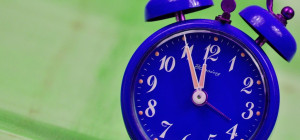 Research has shown that 50% of the population will develop some form of hearing loss at some point in their life. Many believe that hearing loss is just a sign of ageing. Although in some cases this is true, there are thousands of people suffering from noise induced hearing loss and blaming it on old age. The two different forms can be differentiated from each other with a simple hearing test. The results would show the type of hearing loss. If your job has caused damage you would be eligible for a hearing loss claim for compensation as employers by law have to protect staff from noise.
Research has shown that 50% of the population will develop some form of hearing loss at some point in their life. Many believe that hearing loss is just a sign of ageing. Although in some cases this is true, there are thousands of people suffering from noise induced hearing loss and blaming it on old age. The two different forms can be differentiated from each other with a simple hearing test. The results would show the type of hearing loss. If your job has caused damage you would be eligible for a hearing loss claim for compensation as employers by law have to protect staff from noise.
The noise from loud environments cause noise induced hearing loss. Sounds of 85dB have the potential to damage the small hairs in the inner ear. These become limp and pick up less sound. The misconception is that only extreme noises such as explosions have the capacity to cause hearing loss but this isn’t so. Sounds such as hairdryers and vacuum cleaners are of this level. Don’t worry though, you need continual exposure to these sounds to do damage. This won’t be the case drying your hair for a few minutes each day but could be with a full days work, 5 days a week.
Volume isn’t the only factor, length of exposure is also important. The longer noise is exposed to a worker, the more likely they are to develop hearing loss. The opposite is also true, the louder the noise the quicker hearing loss can be caused. The decibel level and length of exposure needed to develop noise induced hearing loss can be calculated;
- 120dB can cause hearing loss in 7.5 minutes (Rock Concert)
- 100dB can cause hearing loss in 2 hours (Chainsaw)
- 90dB can cause hearing loss in 4 hours (Lawnmower)
- 85dB can cause hearing loss in 8 hours (Food blender)
As shown above, as the sound increases by 5dB, the time needed to cause deafness is halved.
It can be hard to show how loud your working environment is. The rule of thumb is if you need to raise your voice to be heard in conversation, you are at risk of hearing loss and should be protected.
How can I be protected?
There are two main forms of protection; at the source and personal. The first action should be to discuss the noise at the origin. This way workers don’t need personal protection to safe guard them from possible deafness. It is usually the cheapest process in the long run. Methods to do this include remote control, sound proofing, lubrication, avoiding metal on metal contact and new machinery. Sometimes these measures aren’t possible or can take a while to implement. This is when personal protection is needed. Ear muffs and plugs offer two options that are portable and can be provided when a worker enters a hazardous area. These areas should be clearly signposted to avoid any accidental exposure.
What should I do if I’ve been exposed in the past?
Many workers of an older generation have been exposed to noise in their previous jobs, you may be one of them. You may find that you struggle to hear the TV or radio. As explained above, noise induced hearing loss is different to natural loss due to ageing. Deafness caused by noise will only affect the high frequencies of your hearing. This will mean you’ll struggle to hear high pitch noises such as female speech, the door bell and the phone ringing.
If you are experiencing any of these symptoms or worried you may in the future, it is advisable to see a doctor. They will organise a hearing test and the resulting audio gram will determine if you have hearing loss and if it’s noise induced. Your first concern is your health but once you are tested you could seek legal action against the employer(s) who have caused your hearing loss. You can claim hearing loss compensation even if your exposure was years ago and the company no longer exists.
There has been research into the affects of common vitamins and minerals on preventing and treating hearing loss. Vitamins A,C and E plus magnesium have all been tested and show signs of helping with hearing loss. These were given to people who were being exposed to noise and also people who had recently been exposed. They are said to help as the vitamins have antioxidant properties that help clear the ear of free radicals that form due to exposure to noise. Magnesium assists by preserving blood flow to the ear. If you are worried your job is loud it would be advisable to take these supplements. They are not a replacement for the protection described above.







